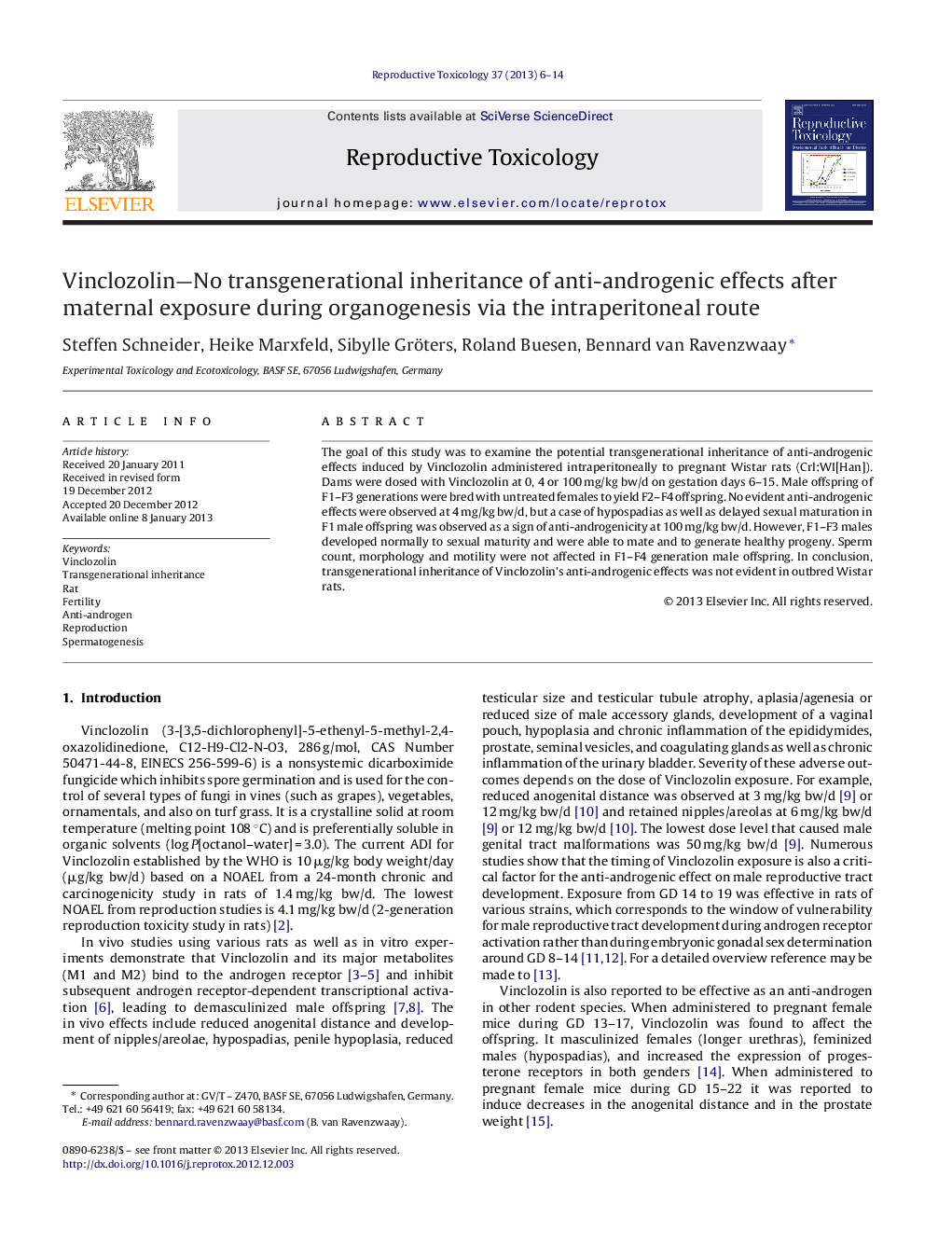| Article ID | Journal | Published Year | Pages | File Type |
|---|---|---|---|---|
| 2593770 | Reproductive Toxicology | 2013 | 9 Pages |
The goal of this study was to examine the potential transgenerational inheritance of anti-androgenic effects induced by Vinclozolin administered intraperitoneally to pregnant Wistar rats (Crl:WI[Han]). Dams were dosed with Vinclozolin at 0, 4 or 100 mg/kg bw/d on gestation days 6–15. Male offspring of F1–F3 generations were bred with untreated females to yield F2–F4 offspring. No evident anti-androgenic effects were observed at 4 mg/kg bw/d, but a case of hypospadias as well as delayed sexual maturation in F1 male offspring was observed as a sign of anti-androgenicity at 100 mg/kg bw/d. However, F1–F3 males developed normally to sexual maturity and were able to mate and to generate healthy progeny. Sperm count, morphology and motility were not affected in F1–F4 generation male offspring. In conclusion, transgenerational inheritance of Vinclozolin's anti-androgenic effects was not evident in outbred Wistar rats.
► Study examined potential transgenerational male germ line inheritance of Vinclozolin anti-androgenicity in outbred Wistar Hannover rats. ► No evident anti-androgenic effects at 4 mg/kg bw/d in F1–F4 male offspring. ► Weak signs of anti-androgenic effects at 100 mg/kg bw/d in F1 male offspring (hypospadias, delayed sexual maturation). ► Historical control apoptotic germ cell counts fluctuate too wildly to draw any scientifically sound conclusions. ► F2–F3 males developed normally; no F2–F4 transgenerational inheritance of Vinclozolin's anti-androgenic effects.
